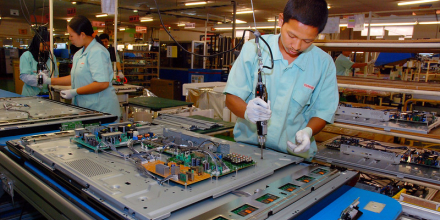Composition matters: The role of trade liberalization in declining labor share of income

Event details
PhD Seminar (Econ)
Date & time
Venue
Speaker
Contacts
This study examines whether trade liberalization is responsible for the decline of aggregate labor share. Using Indonesian manufacturing firms’ data from 1990 to 2015, the paper decomposes the micro-level components of falling aggregate labor share and analyzes how trade liberalization (proxied by falling effective rate of protection) affects each component. It finds that trade liberalization does not reduce firms’ labor share, but shifts the market share towards firms with low labor share in the industry, which tend to have higher productivity. Hence, trade liberalization’s influence on aggregate labor share resembles selection effect in the industry, along the lines of heterogenous firm model (Melitz, 2003), whereby only the most productive firms with lower labor share survive and further rise into dominance following liberalization episode. Contrary to the superstar firm model (Autor et al., 2020), the prominence of reallocation channel does not lead to an escalated aggregate markup in Indonesia. Taken together, this study supports a trade-based explanation for labor share fall; however, improving labor share using trade protection might come at the expense of productivity.
Updated: 28 July 2024/Responsible Officer: Crawford Engagement/Page Contact: CAMA admin










